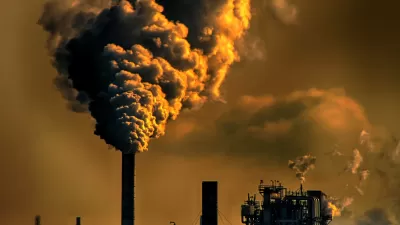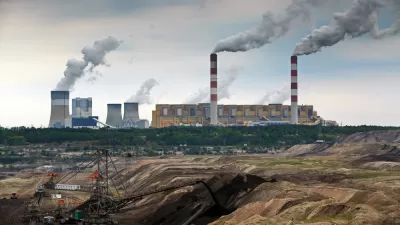Mercury

EPA Targets Co-Benefits in Rulemaking—Public Health to Suffer
The Environmental Protection Agency proposed a critical change in the cost-benefit analysis used in the mercury rule that applies to coal-fired power plants. By eliminating the principle of co-benefits, public health impacts would be severe.
The Far-Reaching Consequences of Remaking the Mercury Emissions Rule
The EPA intends to review the rulemaking process behind the mercury rule, the subject of a landmark Supreme Court ruling in 2015, to place more value on a rule's compliance cost to industry and less to its beneficial impact on human health.

More Bad News for Coal: U.S. Supreme Court Won't Block Mercury Emissions Rule
For a second time, the U.S. Supreme Court chose not to hear from 20 states that sought to block implementation of a U.S. Environmental Protection Agency rule on mercury and air toxins that largely affects coal-fired power plants and public health.

25 Coal Power Plants to Shutter in Michigan in Five Years
Credit EPA emission regulations for the decisions by utilities to close the aging plants. Michigan receives half its power from coal—the most polluting fossil fuel. The new Clean Power Plan rule will cause more remaining plants to close in time.
Opinion: Supreme Court Ruling on EPA's Mercury Rule Will Have Little Effect
When the Supreme Court ruled 5-4 against the Environmental Protection Agency on June 29, it appeared as a blow against mercury regulation by the EPA and a victory for coal power plants. David Roberts of Vox looks closer and finds that's not the case
Supreme Court Overturns EPA's Mercury Rules
In a close ruling, the Supreme Court decided the U.S. Environmental Protection Agency had not properly considered the costs of new regulations limiting mercury and other emissions.
First New U.S. Waste-to-Energy Plant in 20 Years to Open in Florida
Waste-to-energy plants, or incinerators, are classified as renewable power plants by the EPA. A controversial Baltimore plant is under construction as well. More common in Europe, they may be catching on stateside due to low recycling rates.
Coal Ash Finally Regulated—But Not as Hazardous Waste
Six years after one of the worst environmental disasters in U.S. history, the EPA adopted a rule to regulate a byproduct of coal power plants. The new regulation puts coal ash in the same category as household garbage, disappointing many activists.
Supreme Court to Review EPA's Mercury Standard
The top court's decision on Tuesday to review the first-ever regulation of mercury is a setback for Obama's environmental agenda, in part because it has implications for other EPA initiatives including Wednesday's proposal to tighten the ozone rule.
Decisive Supreme Court Win for Clean Air and Public Health
In a huge and perhaps unexpected win for the EPA, the Supreme Court on April 29 reversed an appellate court panel ruling that had rejected their attempt to regulate interstate air pollution caused by about 1,000 coal-fired power plants in 28 states.
Coal Power Plants Dealt Blow by Appeals Court Ruling
The nation's first standards requiring power plants to reduce hazardous emissions, including the neurotoxin mercury, a coal-burning by-product, was upheld by a federal appeals court in a major win for public health, the EPA, and President Obama.
Urban Design for Planners 1: Software Tools
This six-course series explores essential urban design concepts using open source software and equips planners with the tools they need to participate fully in the urban design process.
Planning for Universal Design
Learn the tools for implementing Universal Design in planning regulations.
Heyer Gruel & Associates PA
JM Goldson LLC
Custer County Colorado
City of Camden Redevelopment Agency
City of Astoria
Transportation Research & Education Center (TREC) at Portland State University
Camden Redevelopment Agency
City of Claremont
Municipality of Princeton (NJ)


































